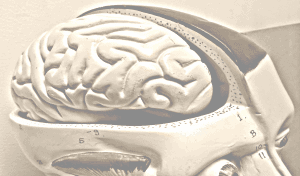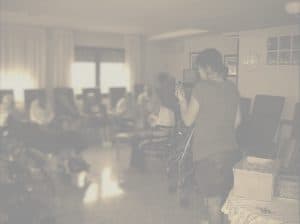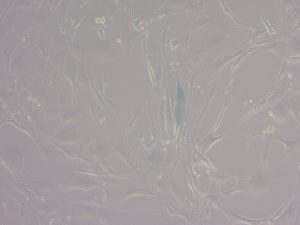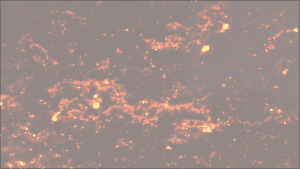There is no doubt this thought from Don Rodrigo, the character played by the actor Fernando Fernan Gomezint the Spanish movie El abuelo (The grandfather), manages to reflect the enormous concern that the human being has about the passage of Time, and the scary moment of facing the inevitable old age period.
Arts have work, in many occasions, as a perfect tool to bring Science closer, not only to the general public but also to the scientific community. Regarding this fact, we currently live in a world where Social Media, such as Twitter, Facebook and blogs, have become the perfect “bridge” to improve the link between Science and General Public. We definitely cannot forget about Cinema as one of these tools to improve this communication. At SRUK, we are working to contribute to this by the screening of different movies related to a scientific matter and by driving an afterwards scientific debate about it in what we have called CineScience. One of the topics we have explore in our last session has been the “Elderly nowadays”.
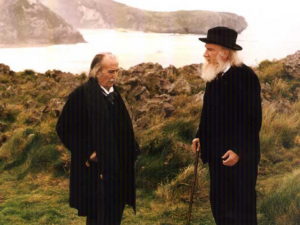
Picture of Don Pío and Don Rodrigo in the film El Abuelo
Many films have been able to present this topic, as the Spanish movie El abuelo (The grandfather), filmed in 1998 and placed in the wonderful landscape of Asturias (North of Spain). Based in the homonymous novel from the Spanish writer Pérez Galdós, nominated to the Oscar for Best Foreign movie in 1999 and directed by José Luis Garci, El abuelo is able to perfectly describe the feelings from elderly people in the Spain at the beginning of the XXth century facing their value as a human being in the society, something that, unfortunately, is still happening nowadays.
Old age, as a period of human life, has had different connotations throughout history. However, it is important to ask ourselves: What is aging like nowadays? What do we mean by old age? When do we consider a person to be “senior”? In conclussion, How do we perceive old age?
The World Health Organization (WHO) defines as “old adult” the people between 60 and 74 years old, as “senior” the people between 75 and 90 years old and “big seniors” the people from 90 years old and above. But the truth is that the general public considers “senior” to all those people whose are around 60 years old and above. However we must remember how the idea of “being old” has changed during Human History realising that life expectancy was in the range between 30 and 40 years old during the last decades of the century, due to war, epidemics and poor medical attention.
“Devil knows more for being old, than for being the Devil”
(With age comes wisdom)
Throughout History, old people have been considered leaders in many cultures, being the ones who keep and bring knowledge, experience and wideness, being respected and admired by the society, as winners and survivors. Many of them are considered the ones in charge of the role of transmitting the tradition and creating inheritors of this tradition. We can find this matter in El Abuelo when Don Rodrigo works hard to find his “real heir” as the last and most important purpose in his life. He is an old man, living in loneliness and poverty, especially because his only son died.
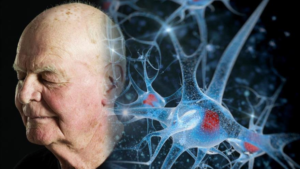 We are all afraid of getting old, that inevitable step that every human being is destined to. But, why are we afraid? Well, because we will be vulnerable to our world, to the people, to diseases and to the environment. But what does exactly define how well we age? This depends on different factors, such as genetics, the environment and our lifestyle. That is the reason why, nowadays, numerous research groups have focused their work on trying to understand in a basic way the biological mechanisms that regulate aging in order to, somehow, break our “biological clock.” Groups such as Dr Juan Carlos Izpisua’s (Laboratory of Gene Expression of the Salk Institute, USA), have taken a step that brings a little bit closer this scientific dream through the use of both mice and human cells. Other research centres such as the Catholic University of Murcia, the Clínica Centro of Madrid, the Clínic Hospital of Barcelona and the University of Michigan School of Medicine have collaborated in these studies through cell reprogramming (a sort of cellular resetting) processes using models that reproduce the Progeria, a rare disease that causes premature aging in humans. However, this strategy is not simple or totally safe at the moment. Even so, the social interest in this subject is reflected in awards like the one known as Vanguardia de la Ciencia (Avant-garde of Science), granting it on 2017 to a research focused on tissue regeneration by Dr Pura Muñoz-Canoves and Dr Laura García-Prat at the Universitat Pompeu Fabra (UPF ). Still, scientists such as Dr Carlos López Otín (Professor of Biochemistry and Molecular Biology at the University of Oviedo, Spain), stress the importance of knowing that this kind of studies have their limitations because “the human being is the result of 3,500 million of years of evolution and radical interventions to change this, could bring evolution to a different human being than the one we know today”.
We are all afraid of getting old, that inevitable step that every human being is destined to. But, why are we afraid? Well, because we will be vulnerable to our world, to the people, to diseases and to the environment. But what does exactly define how well we age? This depends on different factors, such as genetics, the environment and our lifestyle. That is the reason why, nowadays, numerous research groups have focused their work on trying to understand in a basic way the biological mechanisms that regulate aging in order to, somehow, break our “biological clock.” Groups such as Dr Juan Carlos Izpisua’s (Laboratory of Gene Expression of the Salk Institute, USA), have taken a step that brings a little bit closer this scientific dream through the use of both mice and human cells. Other research centres such as the Catholic University of Murcia, the Clínica Centro of Madrid, the Clínic Hospital of Barcelona and the University of Michigan School of Medicine have collaborated in these studies through cell reprogramming (a sort of cellular resetting) processes using models that reproduce the Progeria, a rare disease that causes premature aging in humans. However, this strategy is not simple or totally safe at the moment. Even so, the social interest in this subject is reflected in awards like the one known as Vanguardia de la Ciencia (Avant-garde of Science), granting it on 2017 to a research focused on tissue regeneration by Dr Pura Muñoz-Canoves and Dr Laura García-Prat at the Universitat Pompeu Fabra (UPF ). Still, scientists such as Dr Carlos López Otín (Professor of Biochemistry and Molecular Biology at the University of Oviedo, Spain), stress the importance of knowing that this kind of studies have their limitations because “the human being is the result of 3,500 million of years of evolution and radical interventions to change this, could bring evolution to a different human being than the one we know today”.
In addition to the different advances in the biological knowledge of aging, we must not forget that social factors will have a big influence on the way we understand old age. Although there are societies where the elders are supported from a psychological, family and social perspective, in many others we still find the lack of this type of multidisciplinary support for their well-being.
As examples of this multidisciplinary support, we can mention the personalized health system proposed by the WHO titled “Global Strategy and Plan of Action on Aging and Health” to be implemented all over the world. This is an improvement in the opportunities for the elderly, to offer them a life of retirement and rest from their lives, as they have already completed their role in society. This strategy proposes: the creation of adapted environments for the elderly, known as Gerontodesign, the establishment of systems to provide chronic care, the alignment of health systems with the needs of older people and the change in the perception of aging and older people.
But, as we mentioned previously in this post, many societies still consider the elderly as a problem. It has been shown that the 6% of the ageing population suffer about physical and psychological abuse, which leads up to depression (7% of the aging population) or even suicide. In this movie, we can find how Don Pío (character played by the actor Rafael Alonso), Don Rodrigo’s best friend and also teacher of his granddaughters, suffers form an abuse situation by his own family as Don Rodrigo lives the big treason from the people of his own town. In the opinion of these people in the film, they don’t want to respect neither of them as they are old and not useful to the society anymore.
True inheritance and true honour and love do not always come with “blood”, and as Don Rodrigo says in this movie, “Honour is a piece of shit”, as many people believe they are honourable. There is a world beyond honour, where true values exist and coexist with true feelings. Where life is not defined by how much you have, by how old you look or by how decrepit you feel. Society must stop being afraid of aging and denigrating the elder adult population. We must continue to strive to improve the facilities for our elderly, to give them that life they deserve. It is necessary to establish from childhood a better development of health and education programs that lead us to a better understanding and respect of old age, as well as to carry out a healthy lifestyle that allows us to grow healthy. This way our elders will be able to enjoy this stage as the moment where they will see the fruit and the reward of hard work and contribution to this world and to society. “Our deal is to die of old age” with grace and joy.
By Dr. Karla Robles López, PhD Student and Medical Doctor (Geneticist) and Dr Margarita Segovia Roldán, Postdoctoral Researcher, University of Sheffield. SRUK Yorkshire Constituency.
More info:
http://www.who.int/mediacentre/factsheets/fs404/es/
http://www.abc.es/los-100-influyentes/2017/carlos-lopez-otin.html

